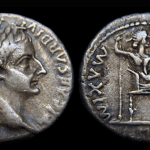
Our subject this week is a case for a politically compassionate, distributive just expression of Christianity. Our reading this week is from the gospel of Matthew:
Hearing that Jesus had silenced the Sadducees, the Pharisees got together. One of them, an expert in the law, tested him with this question: “Teacher, which is the greatest commandment in the Law?”
Welcome Readers! Please subscribe to Social Jesus Here.
Jesus replied: “‘Love the Lord your God with all your heart and with all your soul and with all your mind.’ This is the first and greatest commandment. And the second is like it: ‘Love your neighbor as yourself.’ All the Law and the Prophets hang on these two commandments.”
While the Pharisees were gathered together, Jesus asked them, “What do you think about the Messiah? Whose son is he?” “The son of David,” they replied. He said to them, “How is it then that David, speaking by the Spirit, calls him ‘Lord’? For he says,
‘The Lord said to my Lord:
“Sit at my right hand
until I put your enemies
under your feet.’
If then David calls him ‘Lord,’ how can he be his son?”
No one could say a word in reply, and from that day on no one dared to ask him any more questions. (Matthew 22:34-46)
A version of our reading this week is found in each of the synoptic gospels (Mark 12:28-34, Luke 10:25-29). Each quotes two passages from the Hebrew scriptures: Deuteronomy 6:4-5 and Leviticus 19:18:
“Hear, O Israel: The LORD our God, the LORD is one. Love the LORD your God with all your heart and with all your soul and with all your strength.” (Deuteronomy 6:4-5)
“Do not seek revenge or bear a grudge against anyone among your people, but love your neighbor as yourself. I am the LORD.” (Leviticus 19:18)
The gospels attest that the early Jesus movement and the historical Jesus both favored this interpretive move of defining fidelity to God as love of neighbor and using this lens to interpret the Torah. Fidelity to the God of the Torah impacted how one concretely and materially related to others. Love to God was expressed through the love of the neighbor believed to be made in the image of God. And that “love of neighbor” meant something specific. Social justice circles today often say that social justice is what love looks like in public. This is similar to how the early Jewish Jesus movement interpreted Torah fidelity as well.
This interpretive lens has lots of history in Jewish wisdom. We’ll dig into this, next.
(Read Part 2)














